I may need to begin referring to March as Chicken Poop Remediation month. I recently wrote about how and when I give chickens a bath and how to give baby chicks with pasty butt a modified bath, both of which were necessitated by poop. And now, my one week old chicks remind me of yet another droppings-related problem that requires a modified bath/pedicure: manure balls. Yep, you heard it here first. Manure balls.
For the record: I object to the given term for this problem and wish there were a nicer descriptor, but alas…I am not in charge of such things. Manure balls are caused by chicks walking on droppings that stick to, dry and harden on their toes. These foul, cement-like accumulations can cause problems for baby chicks and must be carefully removed.
So…where were we? Oh, right. Poop.
Droppings, manure, scat, poop, waste, excrement, detritus, however one may refer to it, it is impossible for chicks to avoid walking on it even in the most meticulously maintained brooder. Manure balls that are not removed can cause a variety of problems.
POSSIBLE CONSEQUENCES
1. DEFORMED TOES AND FEET
The bones and muscles of a baby chick are flexible initially and manure balls that are allowed to remain in place can cause the toes and feet to permanently setin awkward positions , causing difficulties with normal roosting and scratching later in life.
2. FOOT INFECTIONS
We know that adult chickens can suffer from an infection known as bumblefoot, which can be caused by bacteria that enters through a laceration on the foot pad. Since chicken droppings are very high in nitrogen, when allowed to build up on the coop or brooder floor, the caustic droppings can cause the skin to break down, essentially causing a burn on the chicken’s foot, which then permits bacteria in the droppings to infect the foot. So, while we don’t usually refer to baby chicks as having bumblefoot, they certainly can get burns and foot infections from manure balls.
3. TOE PICKING AND CANNIBALISM
Chicks explore things with their beaks out of curiosity, boredom and natural instinct. A chick may begin picking their own toes from the irritation manure balls create, causing itself injuries. Those injuries and the manure accumulations themselves can draw unwanted attention from other chicks in the brooder, which can lead to unabated picking, serious injury, cannibalism and death.
I prefer pine shavings or sand in the brooder as litter, so I don’t ordinarily run into a problem with manure balls, but I keep a close eye on tiny toes anyway.
PREVENTION
- Provide ample space in the brooder for each chick and expand it as they grow if necessary.
- Change litter often.
- Check the condition of chicks’ feet regularly. Manure balls can form in a matter of hours.
TREATMENT
- Fill a small basin with lukewarm water.
- While holding the chick as shown, hold the chick’s feet in the water to soften the droppings.
- Gently remove softened droppings being careful not to pull as the skin can tear.
- Towel dry.
Kathy Shea Mormino
Affectionately known internationally as The Chicken Chick®, Kathy Shea Mormino shares a fun-loving, informative style to raising backyard chickens. …Read on


shop my SPONSORS
I may need to begin referring to March as Chicken Poop Remediation month. I recently wrote about how and when I give chickens a bath and how to give baby chicks with pasty butt a modified bath, both of which were necessitated by poop. And now, my one week old chicks remind me of yet another droppings-related problem that requires a modified bath/pedicure: manure balls. Yep, you heard it here first. Manure balls.
For the record: I object to the given term for this problem and wish there were a nicer descriptor, but alas…I am not in charge of such things. Manure balls are caused by chicks walking on droppings that stick to, dry and harden on their toes. These foul, cement-like accumulations can cause problems for baby chicks and must be carefully removed.
So…where were we? Oh, right. Poop.
Droppings, manure, scat, poop, waste, excrement, detritus, however one may refer to it, it is impossible for chicks to avoid walking on it even in the most meticulously maintained brooder. Manure balls that are not removed can cause a variety of problems.
POSSIBLE CONSEQUENCES
1. DEFORMED TOES AND FEET
The bones and muscles of a baby chick are flexible initially and manure balls that are allowed to remain in place can cause the toes and feet to permanently setin awkward positions , causing difficulties with normal roosting and scratching later in life.
2. FOOT INFECTIONS
We know that adult chickens can suffer from an infection known as bumblefoot, which can be caused by bacteria that enters through a laceration on the foot pad. Since chicken droppings are very high in nitrogen, when allowed to build up on the coop or brooder floor, the caustic droppings can cause the skin to break down, essentially causing a burn on the chicken’s foot, which then permits bacteria in the droppings to infect the foot. So, while we don’t usually refer to baby chicks as having bumblefoot, they certainly can get burns and foot infections from manure balls.
3. TOE PICKING AND CANNIBALISM
Chicks explore things with their beaks out of curiosity, boredom and natural instinct. A chick may begin picking their own toes from the irritation manure balls create, causing itself injuries. Those injuries and the manure accumulations themselves can draw unwanted attention from other chicks in the brooder, which can lead to unabated picking, serious injury, cannibalism and death.
I prefer pine shavings or sand in the brooder as litter, so I don’t ordinarily run into a problem with manure balls, but I keep a close eye on tiny toes anyway.
PREVENTION
- Provide ample space in the brooder for each chick and expand it as they grow if necessary.
- Change litter often.
- Check the condition of chicks’ feet regularly. Manure balls can form in a matter of hours.
TREATMENT
- Fill a small basin with lukewarm water.
- While holding the chick as shown, hold the chick’s feet in the water to soften the droppings.
- Gently remove softened droppings being careful not to pull as the skin can tear.
- Towel dry.



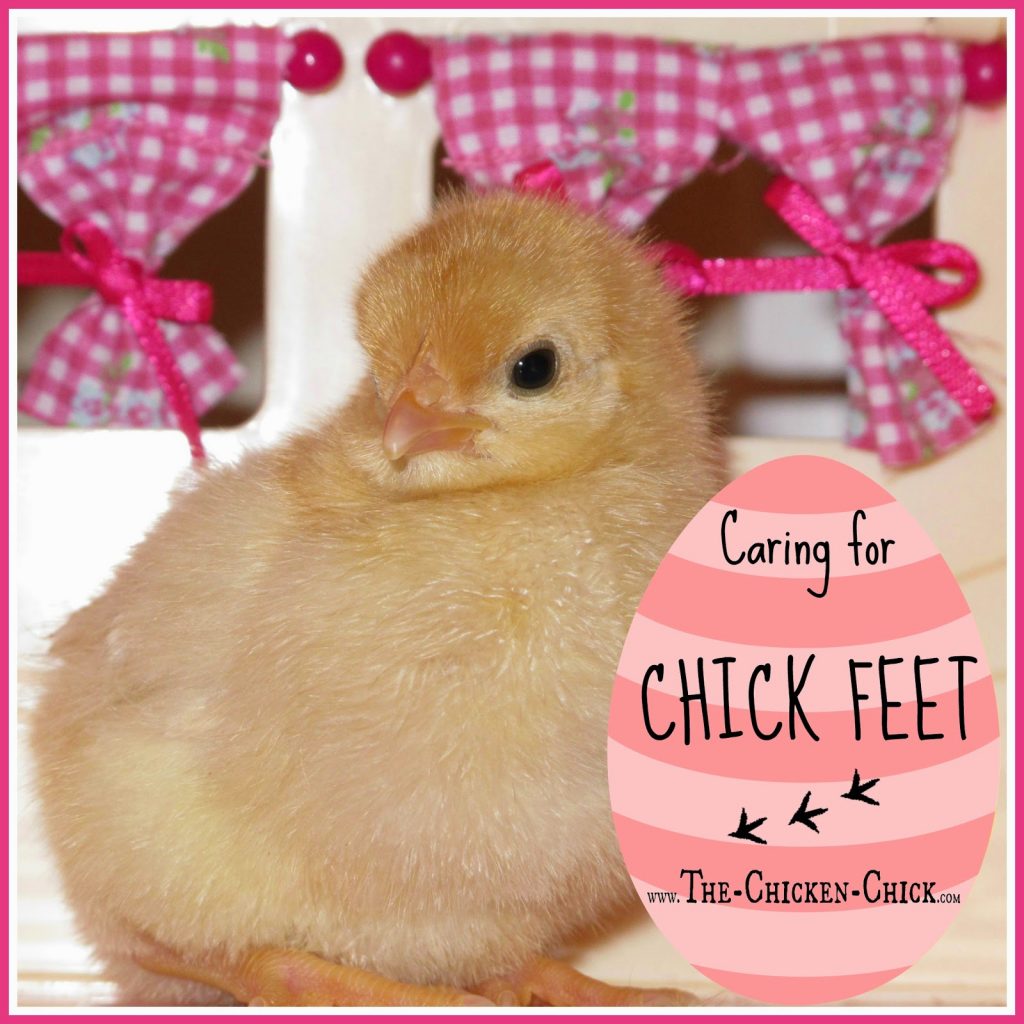
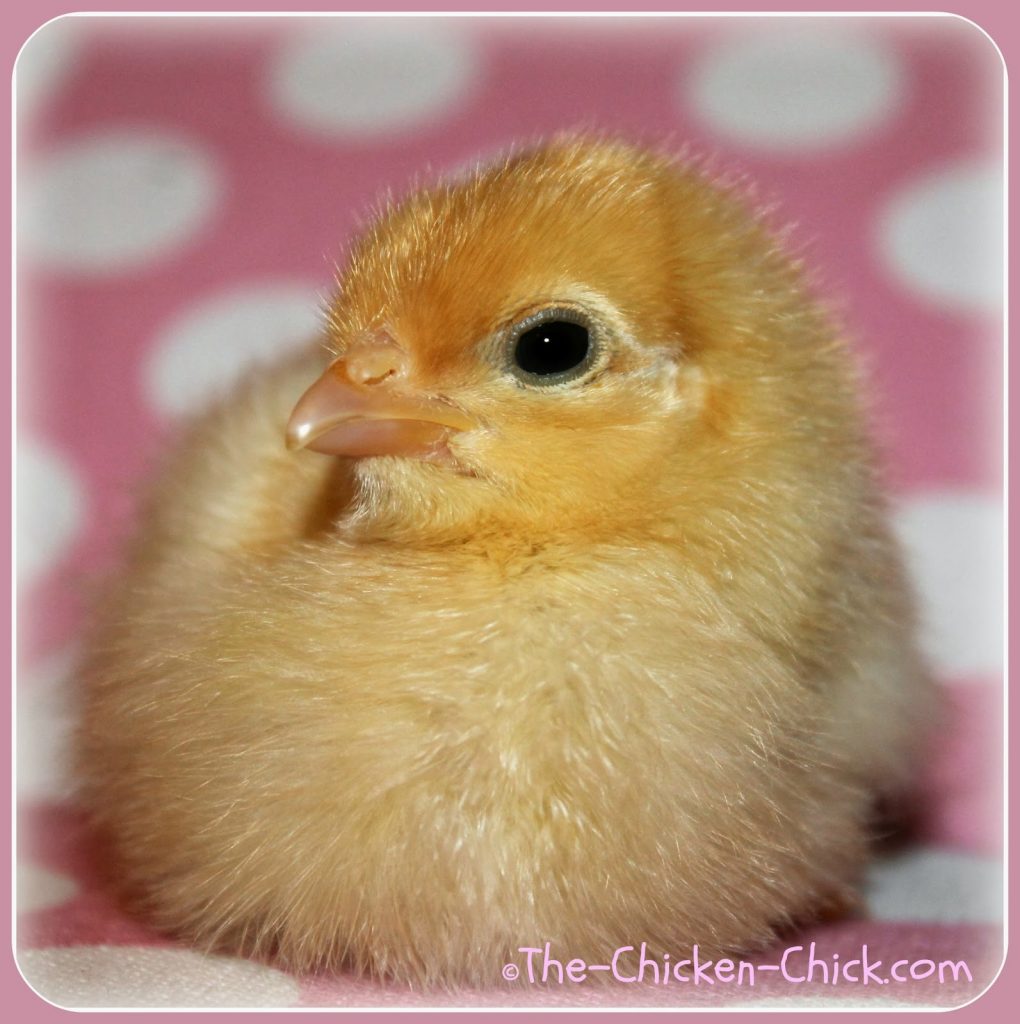
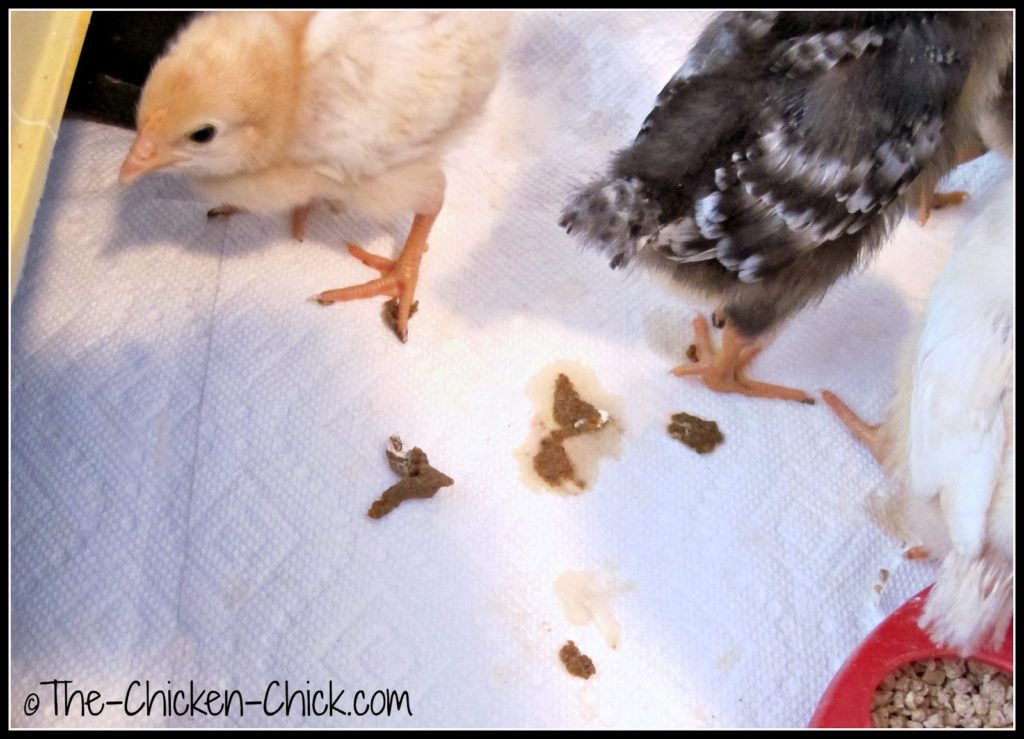
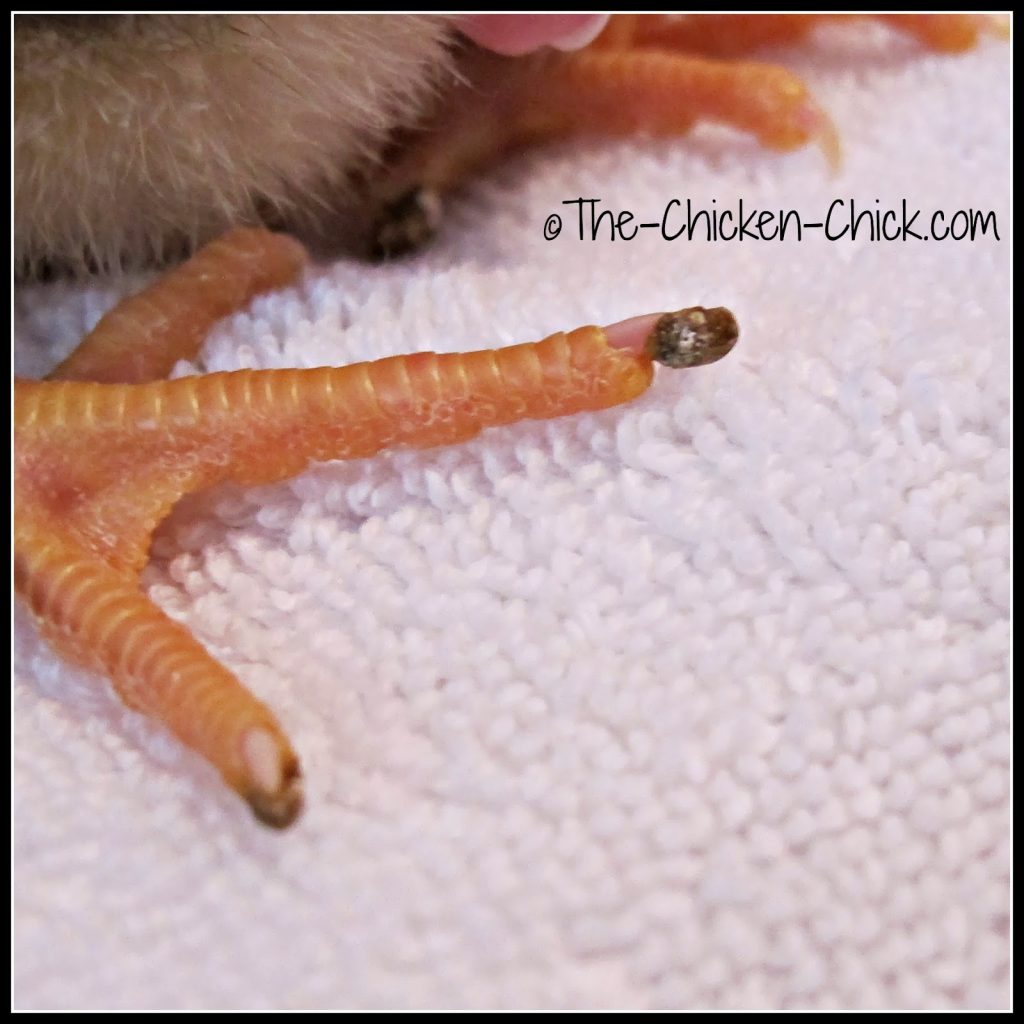
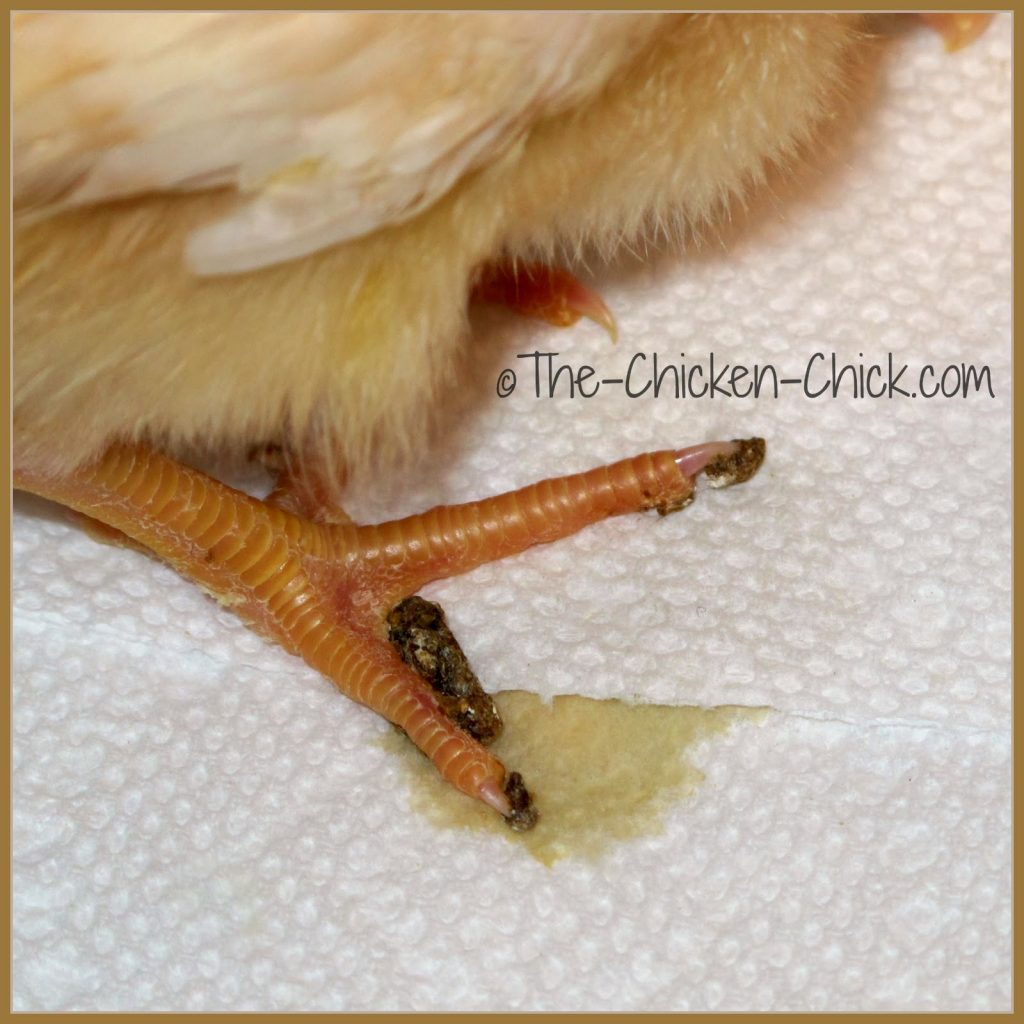
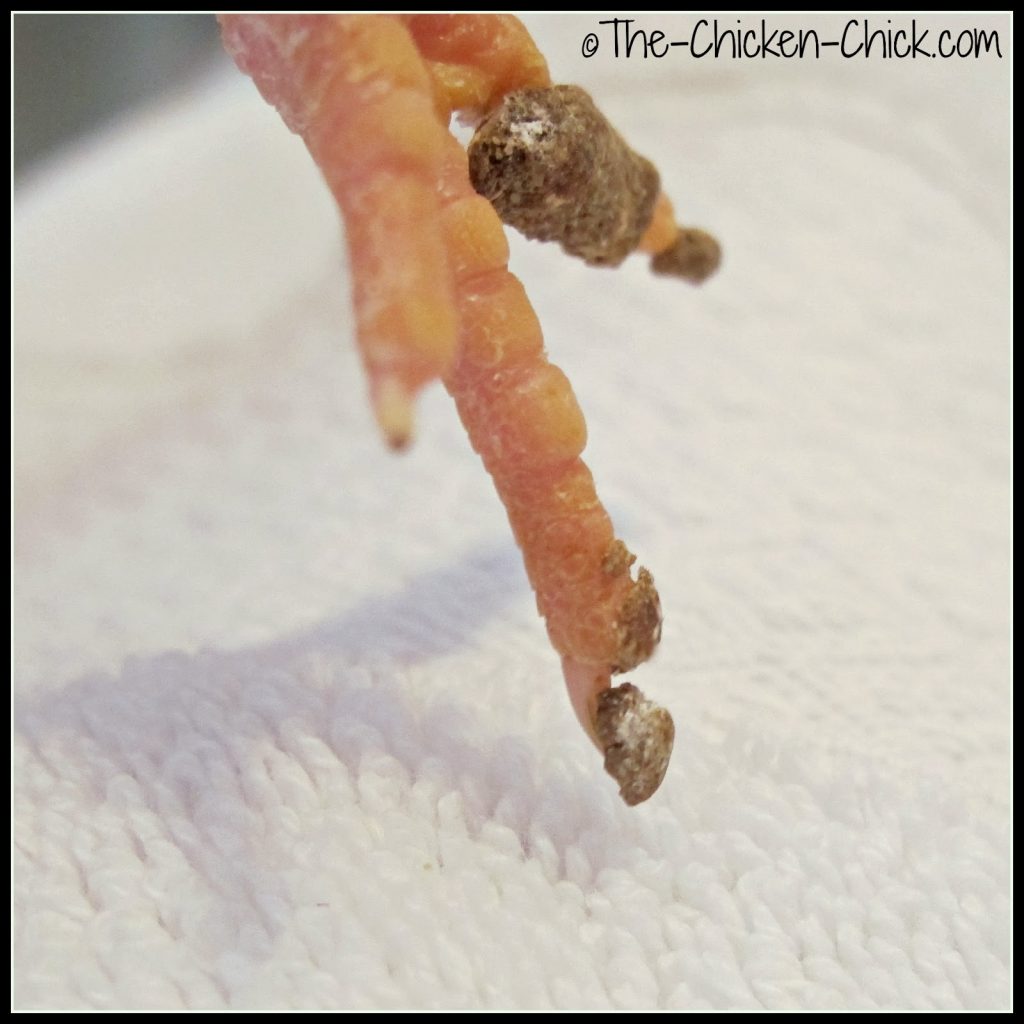
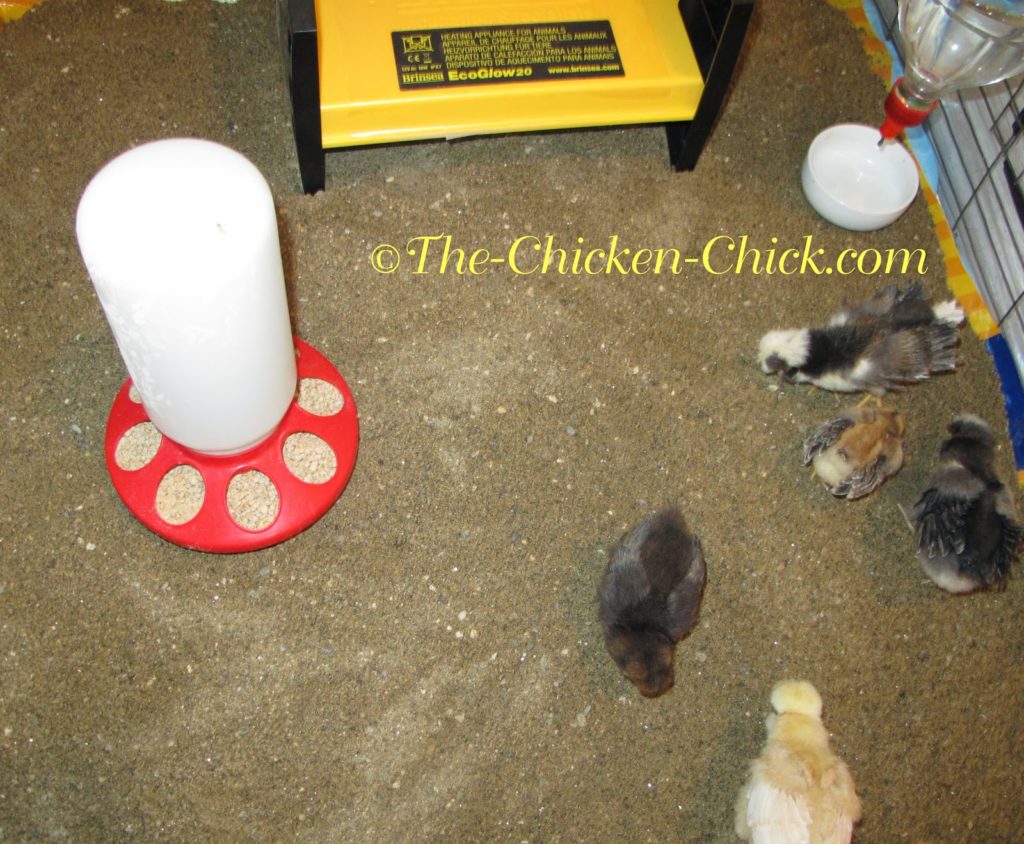
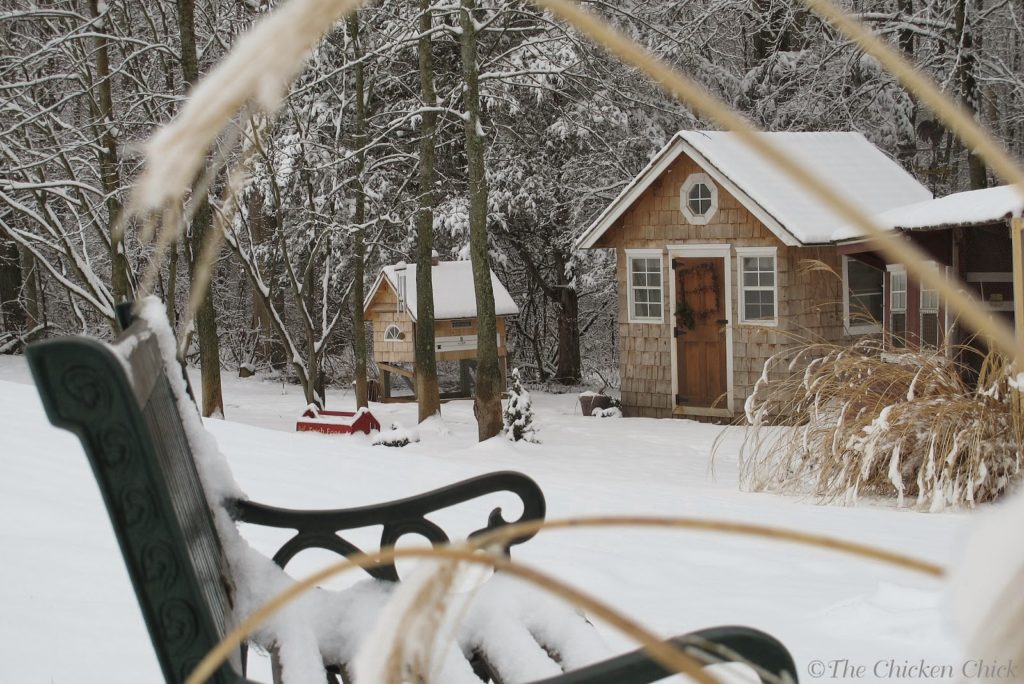
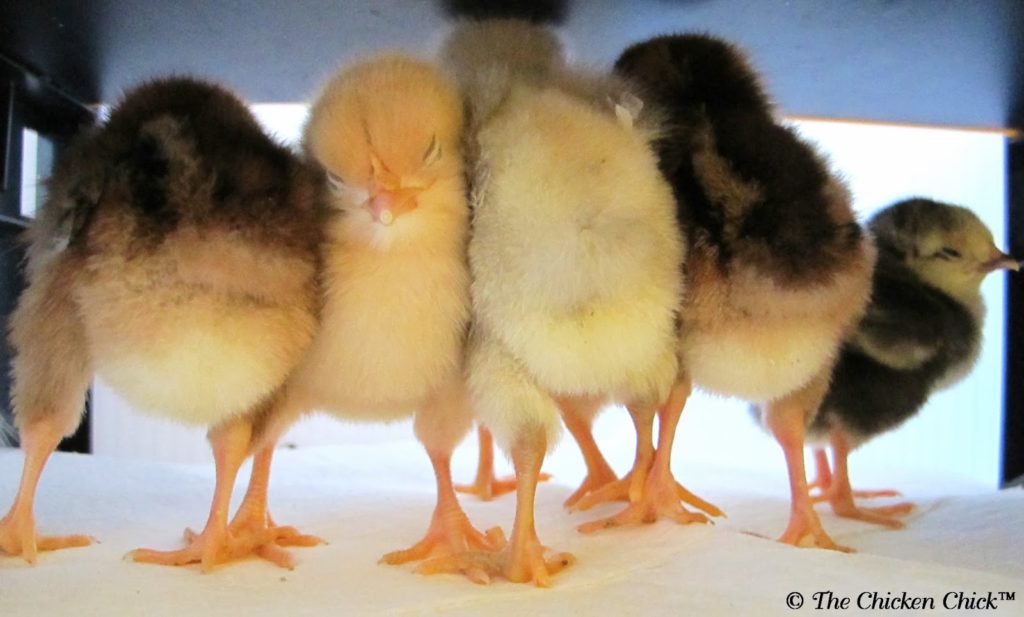
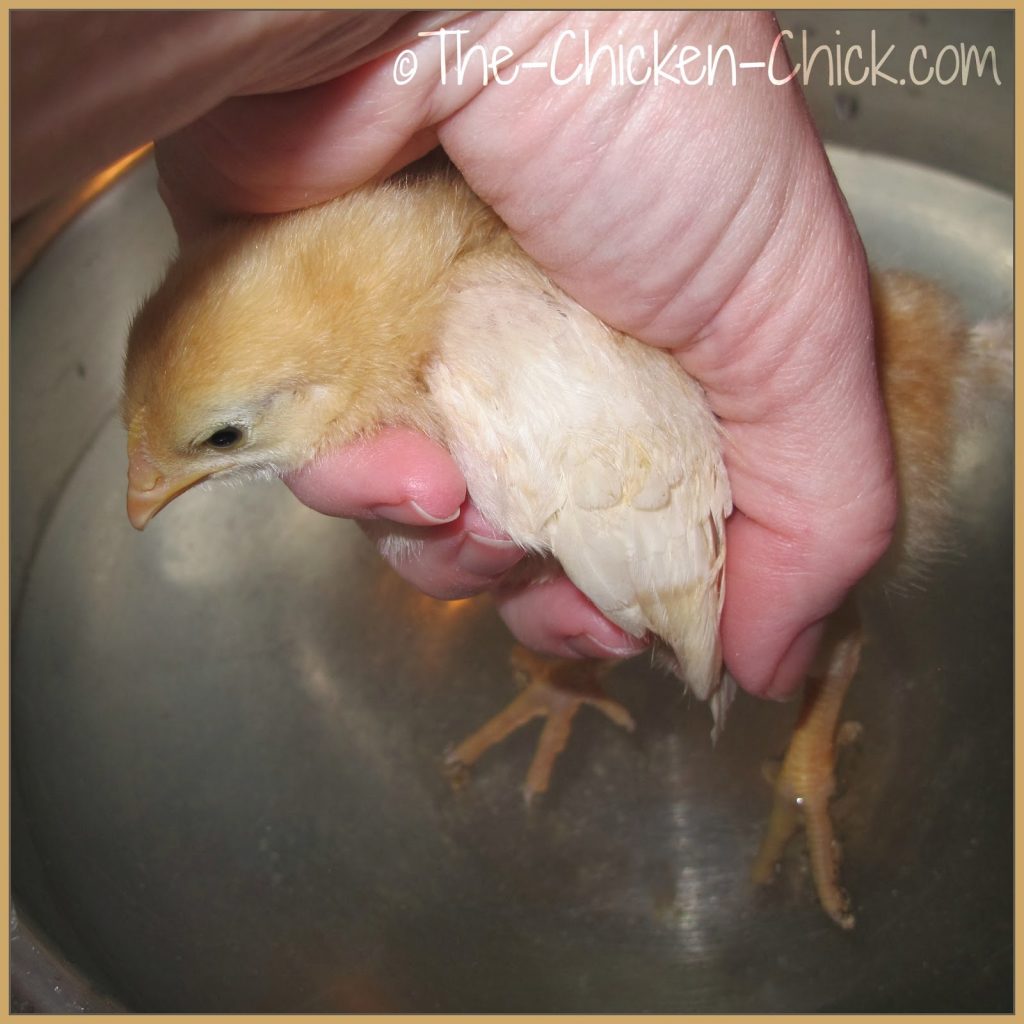
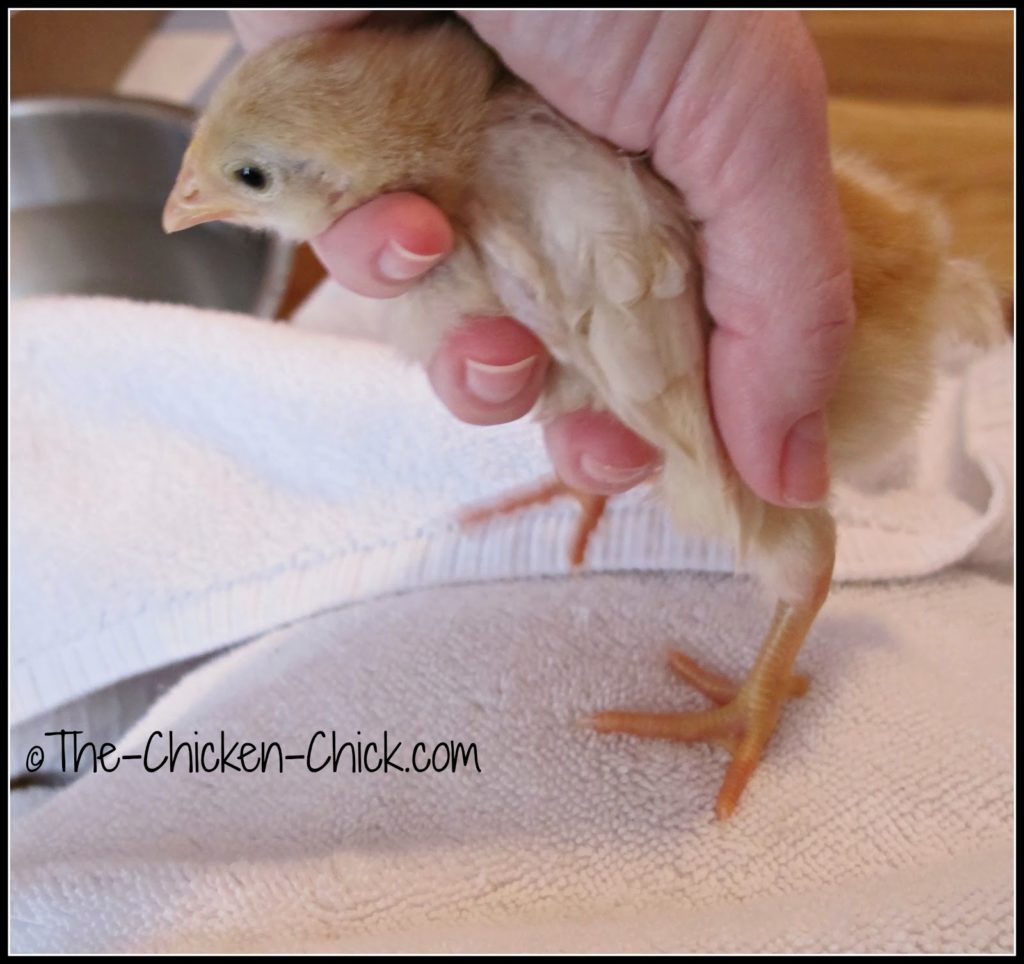
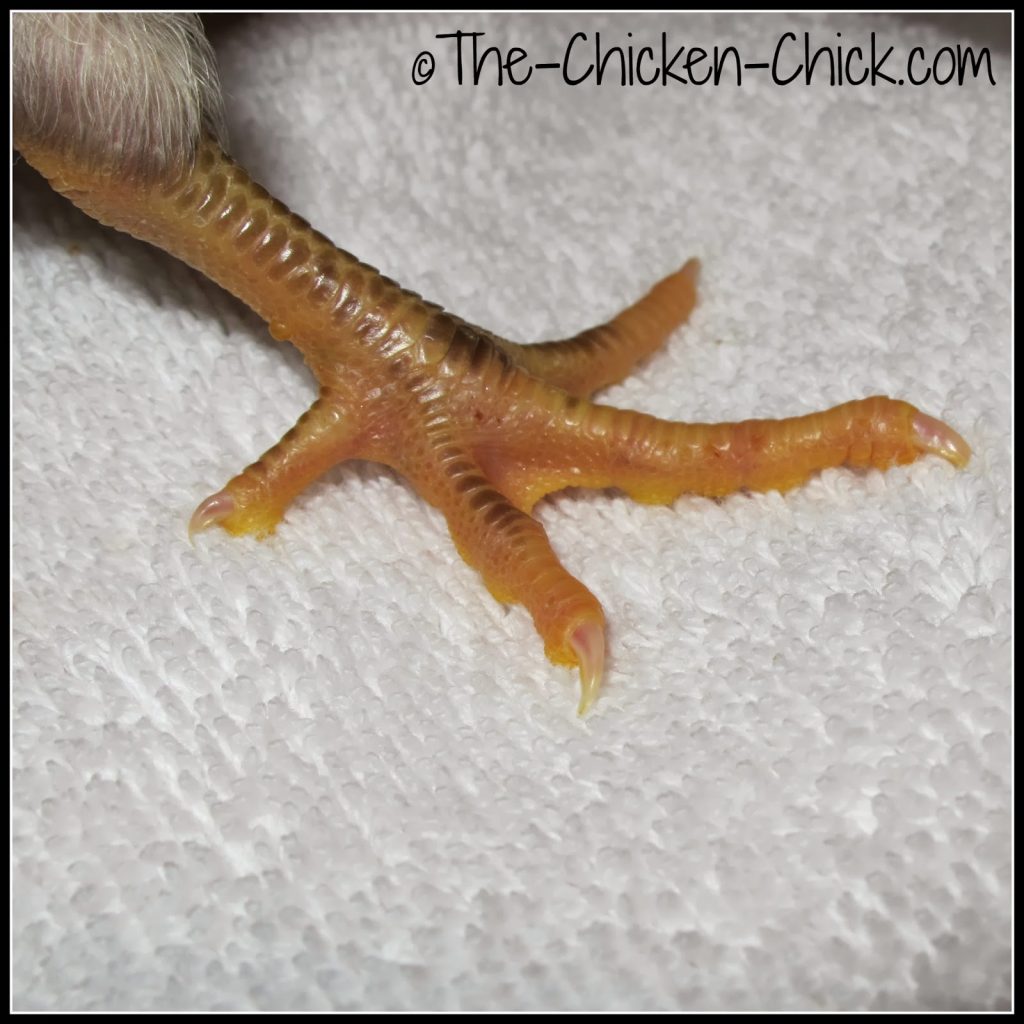















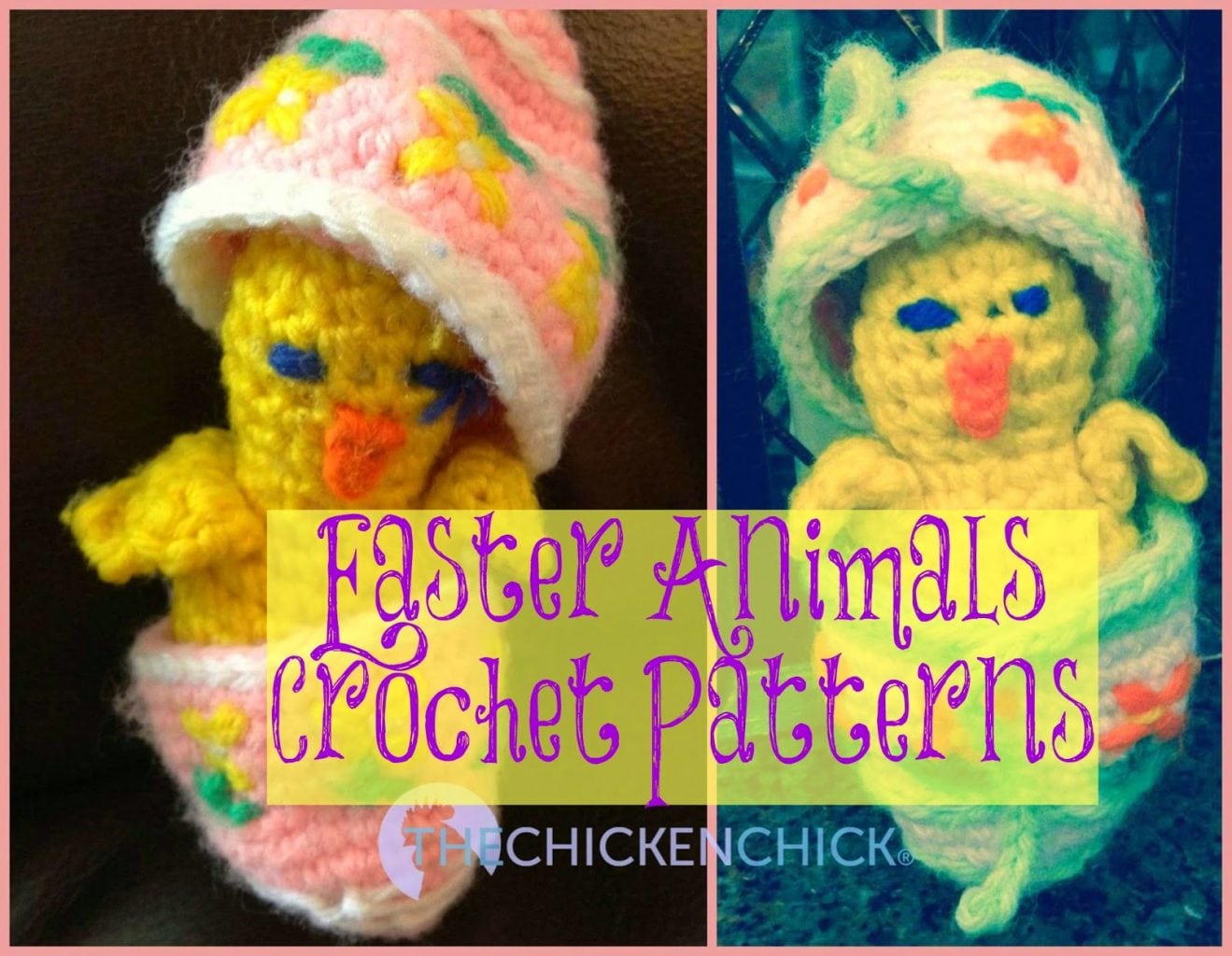






I just got a silkie cross (I think) today….she’s less than a year old. When I got her home I was looking at her feet and noticed what I thought was a piece of goat poop (it was that size) on the end of her toenail! I thought “what the heck is this & how did it stay on there throughout the trip home??!!” When I tried to remove it, however, it was like it was almost cemented to her toenail…like it was a part of her toenail but had a feel that was almost flesh-like. I haven’t removed it… Read more »
Glad to know this. The chicks are now a week old. I have found Koop Clean and am now using it. I will post later how I like it. The chicks where are very afraid when I was putting it in the Brooder but now are chirping away happily scratching! Thanks for your help. ?
There is no need for concern, Stephanie. The reason for paper towels for the first few days is to make sure the chicks know where the feed is and learn that the bedding is not feed. Sand is grit and passes through their digestive tract. There is a much greater risk of impaction when using pine shavings or straw in the brooder than with sand.
Kathy, I am willing to use pre-washed construction
sand in my brooder. Currently I am using paper towels. Baby’s poop allot! Is there a chance the chicks would get impacted by taking in too much sand? I would have to travel a ways to get Koop Clean.
I am going to give that a try – thanks!